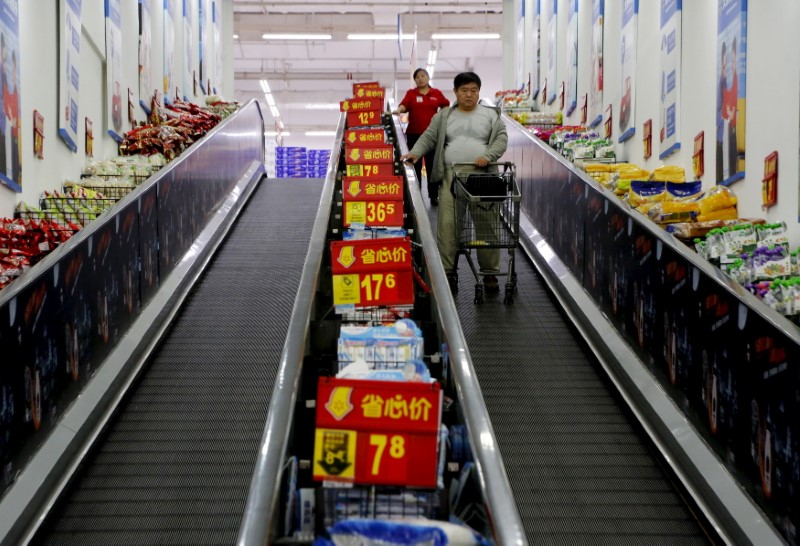(Bloomberg) -- China’s inflation eased in January, providing Beijing with more leeway to shore up the economy ahead of a key political leadership meeting later this year.
The producer price index rose 9.1% from a year earlier, official data showed Wednesday, weaker than economists’ forecasts for a 9.5% increase and down from 10.3% in December. Consumer prices grew 0.9% last month from a year earlier, slower than a projected 1% increase.
A moderation in inflation in recent months has given the central bank scope to cut interest rates and pump liquidity into the financial system to support a faltering economy. Beijing shifted to a more pro-growth bias late last year as a property market slump and repeated virus outbreaks dragged down growth in the world’s second-largest economy. While the People’s Bank of China refrained from cutting interest rates this week, market watchers expect further reductions in coming months.
The retreat in factory-gate inflation in January was largely due to the high base of comparison a year earlier. Higher costs in January continued to squeeze manufacturers, with purchasing managers’ surveys showing both input and output price sub-indexes signaling faster gains.
On Tuesday Premier Li Keqiang repeated the government’s pledge to keep prices stable and help companies in downstream sectors ease cost pressures. Authorities should “attach great importance to solving the constraints in economic operations and stabilize market expectations,” the regular State Council meeting chaired by Li concluded.
Consumer inflation stayed subdued, despite a seasonal spike in demand around the Lunar New Year holidays, which began on the last day of January this year. The reading was mainly dragged lower by food prices, which dropped 3.8% in January. Pork prices dropped at a faster pace of 41.6% and prices of fresh vegetables fell 4.1%.
Core inflation, which excludes volatile energy and food prices, rose 1.2%, the same as in November and December, a sign of subdued consumer demand. Confidence remained weak during the seven-day Lunar New Year break, a usually busy time for spending, with tourism revenue down 4% from the same period last year and 44% below 2019 levels. Services inflation rose 1.7% in January.
Economists expect China’s factory-gate inflation to continue softening during the year to reach an average of 3.9% in 2022, as supply chain bottlenecks ease and because of comparisons with last year’s higher base. The nation’s top economic planner also predicts that PPI will ease gradually, with tighter monetary policy in the rest of the world helping to weaken the rally in global commodities. Consumer prices are expected to continue their mild gains, as supplies of important necessities are sufficient, the National Development and Reform Commission said in a statement this month.
©2022 Bloomberg L.P.
